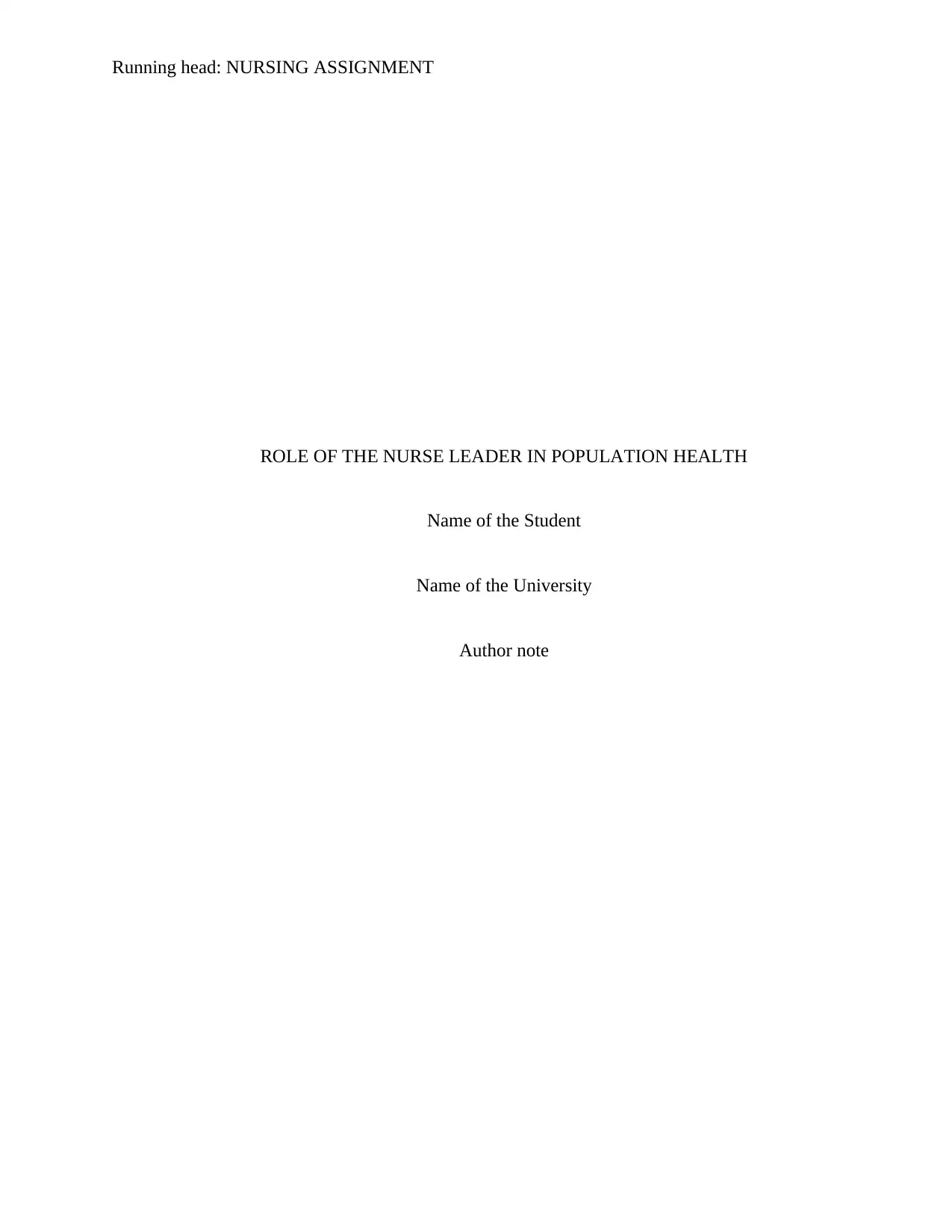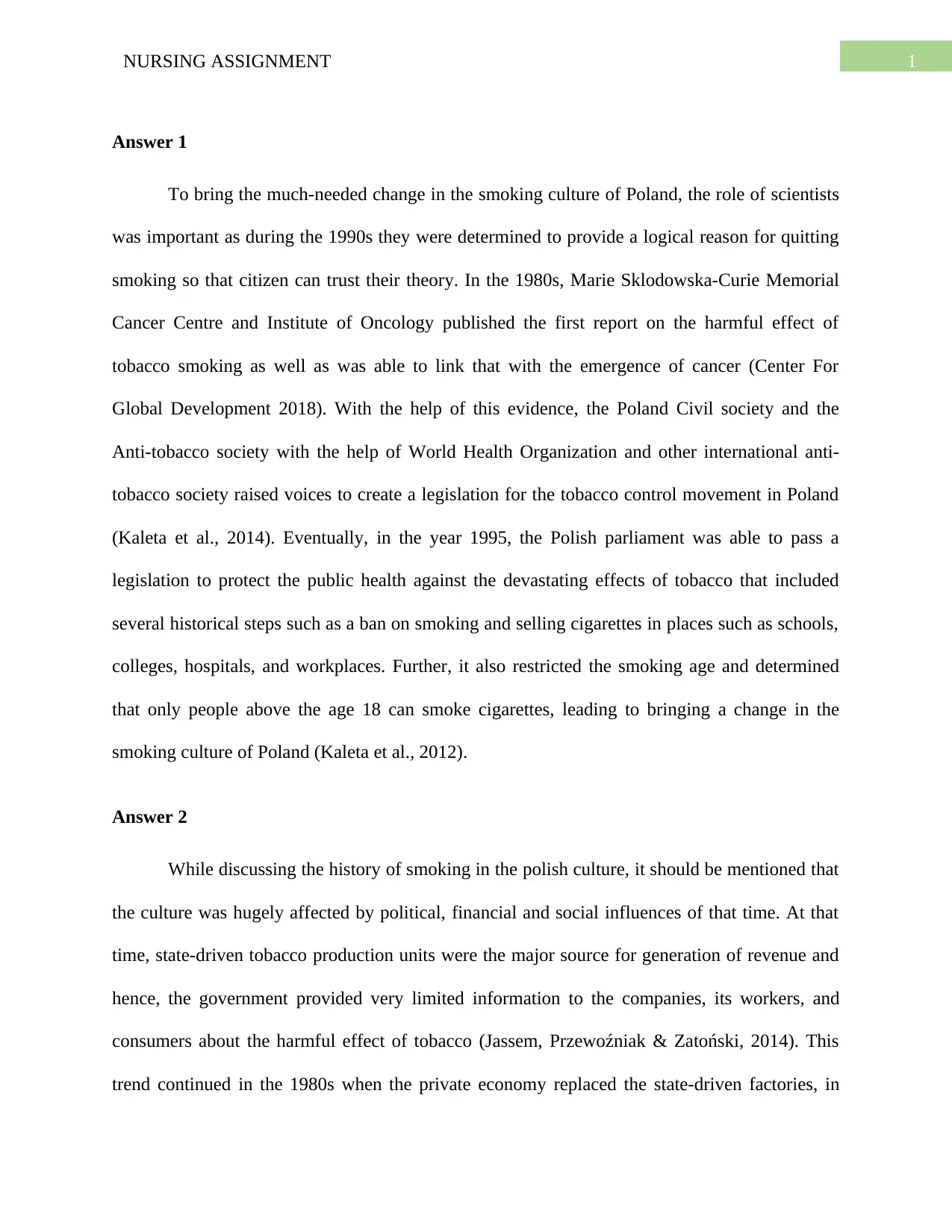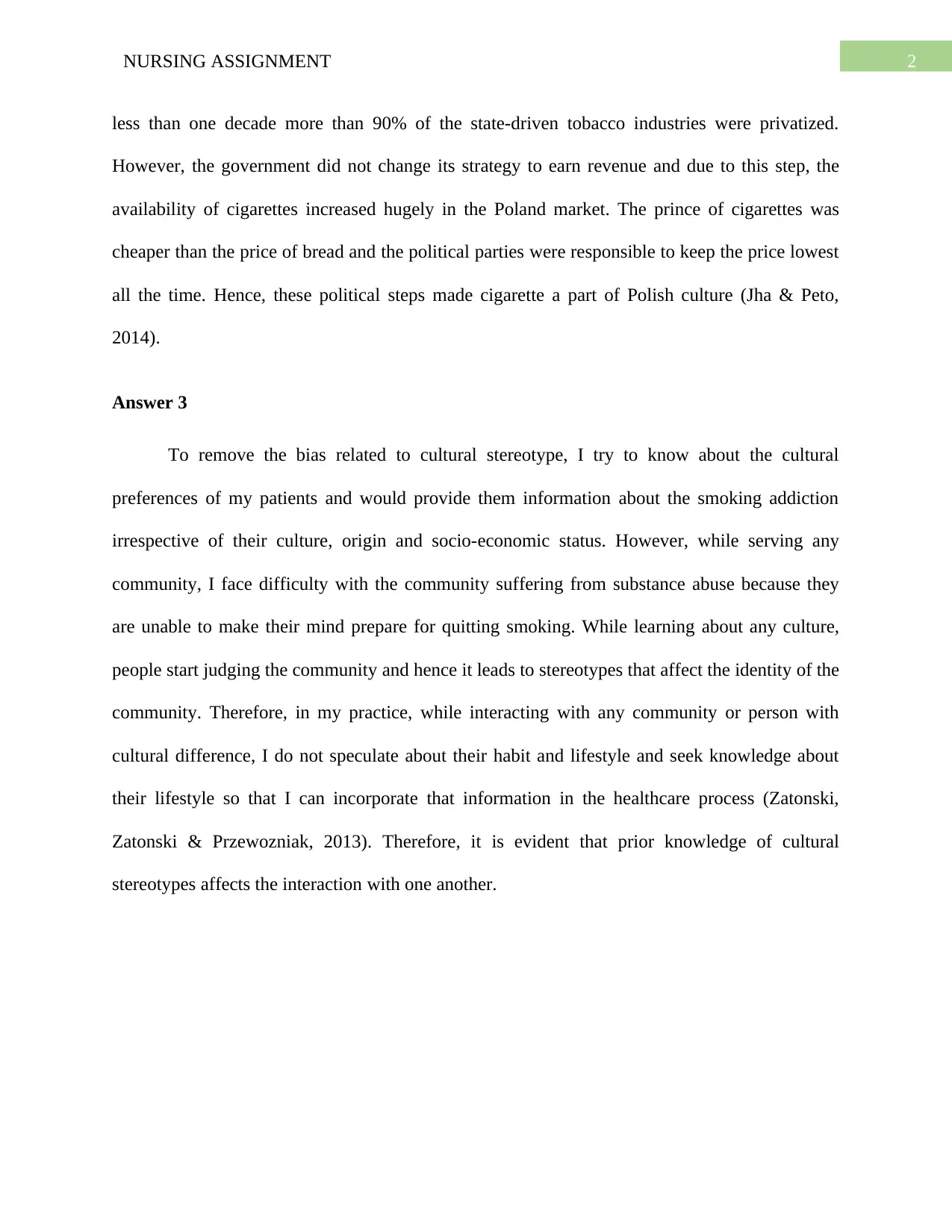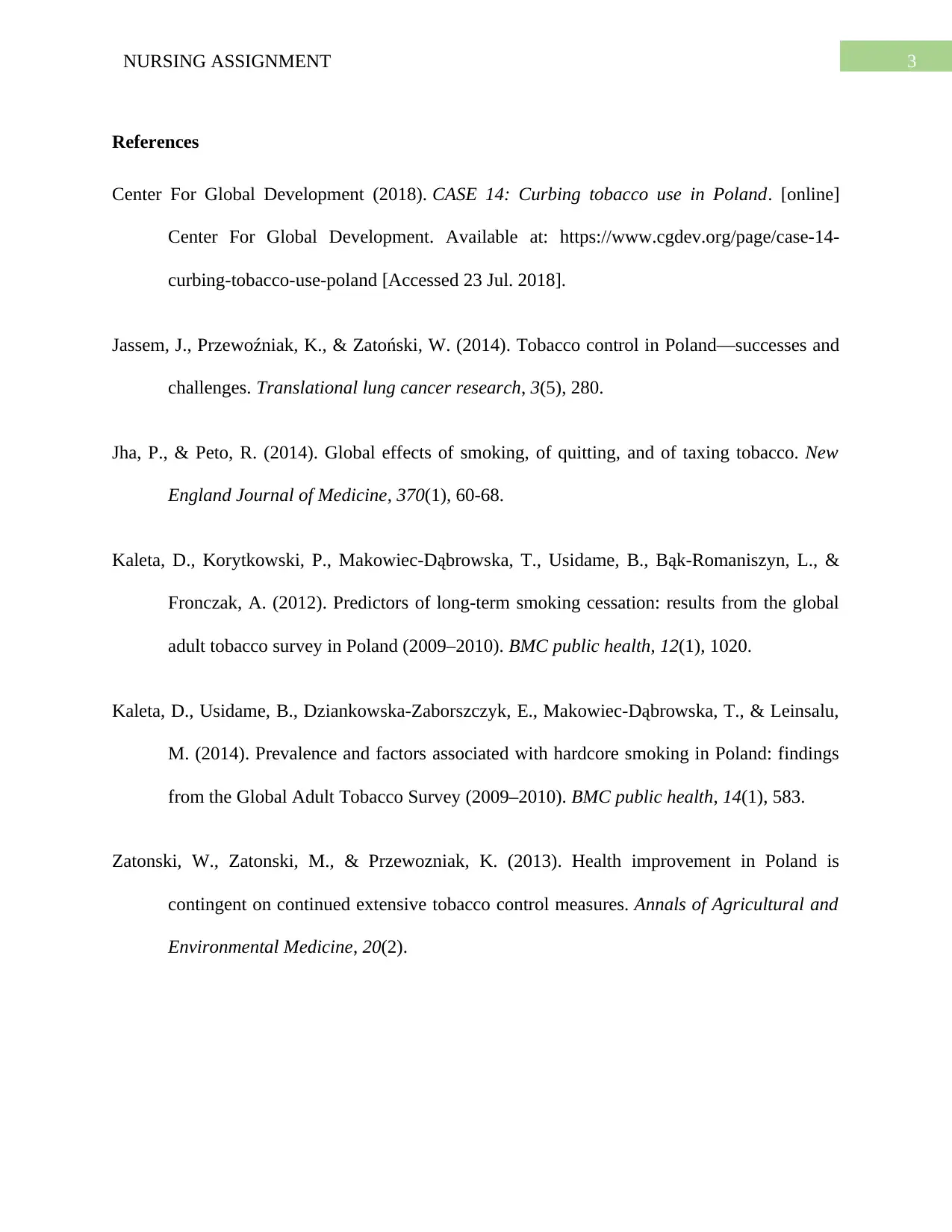Nursing Role: Analyzing Poland's Smoking Culture Transformation
VerifiedAdded on 2023/06/11
|4
|889
|129
Discussion Board Post
AI Summary
This discussion board post examines the transformation of smoking culture in Poland, focusing on the role of scientists, civil society, and international organizations in implementing tobacco control legislation. It highlights the impact of political, financial, and social factors on the prevalence of smoking in Polish culture, particularly the government's revenue-driven approach to tobacco production. The post also addresses the importance of overcoming cultural bias in nursing practice, emphasizing the need to understand patients' cultural preferences and avoid stereotypes. It reflects on personal experiences in dealing with substance abuse within communities and stresses the significance of cultural knowledge in shaping healthcare interactions. The assignment includes references to support the analysis of tobacco control in Poland and the challenges of cultural sensitivity in nursing.
1 out of 4






![[object Object]](/_next/static/media/star-bottom.7253800d.svg)